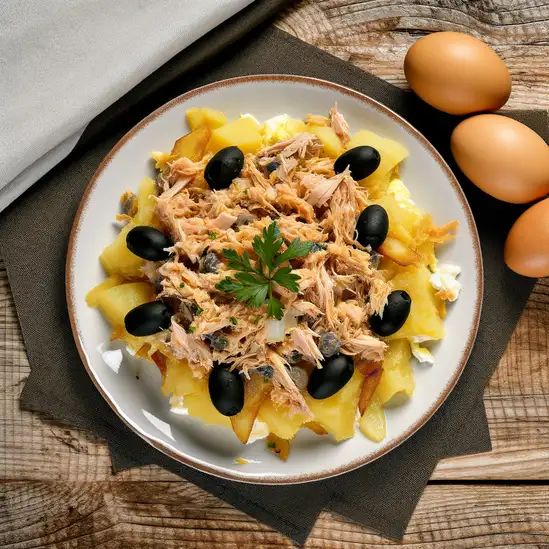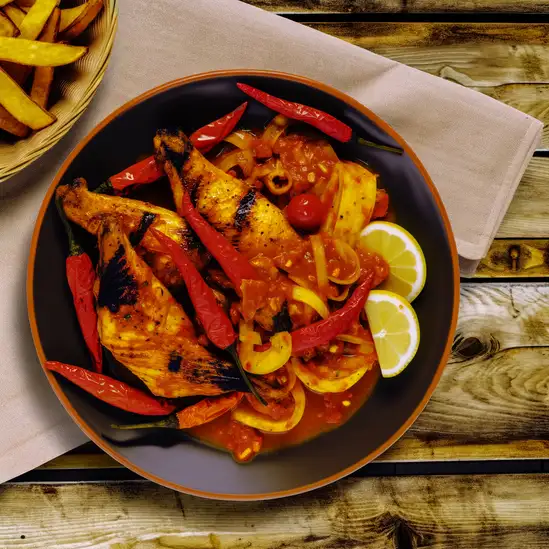



If you ever find yourself in Luanda,Angola,get ready to be swept up by a city that pulses with energy and warmth unlike anywhere else. The moment you step out,you’re greeted by the salty breeze from the Atlantic,mingling with the rich aroma of grilled seafood wafting from street vendors. The city hums with life—music spills from open windows,laughter echoes through bustling markets,and the vibrant colors of local fabrics and street art splash across every corner. Luanda’s character is a beautiful blend of old and new. Colonial-era buildings stand shoulder to shoulder with sleek modern skyscrapers,telling stories of a complex history and a hopeful future. Walking along the Marginal,the waterfront promenade,you’ll see fishermen casting nets beside joggers and families enjoying the sunset,painting a picture of everyday life that feels both intimate and alive. What really makes Luanda unforgettable is its people—their warmth and resilience shine through every interaction. Whether you’re sharing a cup of strong,sweet coffee at a neighborhood café or dancing to kizomba beats in a lively bar,you’ll feel a genuine connection to the city’s soul. And don’t miss tasting the local dishes—imagine spicy moamba chicken or fresh fish grilled to perfection,bursting with flavors that tell a story of the land and sea. Luanda isn’t just a place to visit; it’s a place to feel,to experience,and to carry with you long after you leave.
The information on this page is currently being reviewed by Tripkliq and should be used as a guide only
Eng word: Hello
Eng pronunciation: Oh-lah
Local language: Olá
Eng word: Goodbye
Eng pronunciation: Ah-deh-oosh
Local language: Adeus
Eng word: Thank you
Eng pronunciation: Oh-bree-gah-doo
Local language: Obrigado
Eng word: How much
Eng pronunciation: Kwahn-too koos-tah
Local language: Quanto custa
Eng word: Toilet
Eng pronunciation: Bahn-yay-roo
Local language: Banheiro
Eng word: Help me
Eng pronunciation: Ah-zhoo-dee mee
Local language: Ajude-me
Eng word: Yes
Eng pronunciation: Seem
Local language: Sim
Eng word: No
Eng pronunciation: Now
Local language: Não
Eng word: Excuse me
Eng pronunciation: Kohm lee-sen-sah
Local language: Com licença
Luanda was founded by the Portuguese explorer Paulo Dias de Novais in 1575.
Luanda was a major hub for the transatlantic slave trade, with millions of enslaved Africans passing through the city.
Angola gained independence from Portugal in 1975, with Luanda becoming the capital of the newly independent country.
Luanda was heavily affected by the Angolan Civil War, which lasted from 1975 to 2002.
Luanda has experienced rapid population growth, becoming one of the most populous cities in Africa.
Luanda is a major economic hub in Angola, with a significant oil industry and other sectors driving the city's economy.
Luanda is known for its cultural diversity, with influences from Portuguese, African, and other cultures shaping the city's identity.
Luanda has seen significant infrastructure development in recent years, with new roads, buildings, and other projects transforming the cityscape.
Portuguese colonial rule left a lasting impact on Luanda, with many buildings and traditions reflecting this influence.
In Luanda, the most common Power Adaptor is Type C, Type F.



A popular dish made with shredded salted cod, onions, and thinly sliced fried potatoes, bound together with scrambled eggs.

Grilled chicken marinated in a spicy piri-piri sauce, known for its fiery flavor, often served with rice or fries.

A traditional stone soup made with various meats, vegetables, and spices, symbolizing communal cooking and sharing.

A hearty fish stew made with various types of fish, vegetables, and spices, reflecting the coastal influences of Angolan cuisine.

A traditional Angolan chicken stew made with palm oil, okra, and spices, often served with rice or funge.

A staple dish made from cassava flour, cooked to a thick, dough-like consistency, typically served as a side with stews.

A dish made from cassava leaves cooked with peanuts and palm oil, often served as a side dish or with rice.
Imagine stepping into a place where the air carries a salty tang from the ocean,mingling with the earthy scent of fynbos and the distant hum of lively street markets. That’s Cape Town for you—a city that feels alive in every corner,where rugged mountains meet endless blue seas,and every sunset paints the sky in fiery oranges and pinks. Walking through its neighborhoods,you’ll hear a mix of languages and laughter,the clinking of glasses in cozy cafés,and the rhythmic beats of local music spilling out from tucked-away venues.
Cape Town’s character is a vibrant tapestry woven from its rich history and diverse cultures. You can wander through the colorful houses of Bo-Kaap,taste the spicy aromas of Cape Malay cuisine,or explore the bustling V&A Waterfront where fresh seafood and artisan crafts come alive. The city pulses with creativity—from street art that tells stories of resilience to galleries showcasing contemporary African talent. It’s a place where tradition and modernity dance together effortlessly.
What really stays with you is the feeling of space and possibility. Whether you’re hiking up Table Mountain,feeling the cool breeze on your face,or sipping a glass of local wine while watching the sun dip below the horizon,Cape Town invites you to slow down and soak it all in. It’s a city that doesn’t just welcome you—it wraps you in its warmth and leaves you dreaming of coming back.
A tropical paradise with lush rainforests,pristine beaches,and volcanic landscapes,São Tomé is perfect for island lovers and eco-tourism.
ExploreFamous for its historic Stone Town,spice tours,and idyllic beaches,Zanzibar City offers a mix of culture and relaxation on the Indian Ocean.
ExploreIf you ever find yourself wandering through Victoria,the capital of Seychelles,you’ll immediately notice its laid-back charm mixed with a vibrant pulse that feels both intimate and alive. It’s not a sprawling metropolis but a cozy town where the ocean breeze carries the scent of salt and tropical flowers,and the chatter of Creole,English,and French blends into a warm,welcoming hum. Walking through the colorful streets,you’ll catch glimpses of bustling markets where fresh spices,exotic fruits,and fragrant vanilla pods fill the air,inviting you to taste the island’s rich flavors.
Victoria’s character is a beautiful blend of cultures,reflected in its colonial architecture,lively street art,and the friendly smiles of locals who are always ready to share a story or recommend their favorite spot. The city feels like a crossroads of history and nature,with the iconic clock tower standing proudly as a reminder of its past,while just a short stroll away,the lush Botanical Gardens offer a peaceful escape filled with giant tortoises and vibrant tropical plants.
What really makes Victoria special is how it balances the simplicity of island life with a genuine sense of community and culture. Whether you’re sipping a freshly brewed Seychellois tea at a café,listening to the distant rhythm of sega music,or watching fishermen haul in their catch at the harbor,there’s a comforting rhythm here that invites you to slow down,breathe deeply,and soak in the moment. It’s a place that stays with you long after you leave.
If you find yourself wandering through Port Louis,you’ll immediately notice its vibrant pulse—a lively mix of old-world charm and bustling modern life that feels both warm and inviting. The city hums with energy,from the colorful stalls of the Central Market where spices,fresh tropical fruits,and fragrant street food scents mingle in the air,to the chatter of locals bargaining and sharing stories. It’s a place where the past and present dance together,with colonial architecture standing shoulder to shoulder with sleek skyscrapers.
Walking along the waterfront,the salty breeze carries the distant calls of fishermen and the gentle clinking of boats bobbing in the harbor. The streets are alive with a blend of cultures—Creole,Indian,Chinese,and French influences swirl through the food,music,and festivals. You can’t help but be drawn into the rhythm of sega music playing softly from a nearby café or the rich aroma of dholl puri being freshly made on a street corner.
Port Louis isn’t just a city; it’s a sensory experience. The vibrant colors of the market,the warmth of the people,and the tantalizing tastes of local dishes like octopus curry or gateau piment make it unforgettable. It’s a place where every corner tells a story,and every moment feels like an invitation to explore deeper. Trust me,once you’ve soaked in its unique spirit,you’ll carry a piece of Port Louis with you long after you leave.
Imagine stepping into Maputo and instantly feeling the pulse of a city that’s alive with rhythm and warmth. The air carries a mix of salty ocean breeze and the rich aroma of freshly grilled seafood from street vendors,while the streets hum with the chatter of locals and the distant beat of marrabenta music. It’s a place where colonial architecture with its pastel hues stands shoulder to shoulder with vibrant markets bursting with colorful fabrics,spices,and handcrafted treasures. Walking along the waterfront,you catch glimpses of fishermen hauling in their catch,and the scent of coconut and tropical fruits mingles with the salty air.
Maputo’s charm lies in its effortless blend of cultures—Portuguese influences mingle with African traditions,creating a unique,laid-back vibe that’s both cosmopolitan and deeply rooted in local life. The city feels like a warm embrace,where people greet you with genuine smiles and invite you to share in their stories over a cup of strong coffee or a cold bottle of 2M beer. At night,the city transforms as jazz and Afrobeat spill out from cozy bars,inviting you to dance or simply soak in the lively atmosphere.
What really stays with you is the city’s spirit—resilient,creative,and welcoming. Whether you’re wandering through the bustling Mercado Central,savoring fresh prawns at a beachside shack,or watching the sunset paint the sky over the Indian Ocean,Maputo leaves you with a sense of having discovered a place that’s both vibrant and heartfelt,a city that invites you to slow down and savor every moment.
Scammers may install skimming devices on ATMs to steal card information when tourists withdraw cash.
Scammers may approach tourists asking for donations to fake charities or causes, often using emotional stories to elicit sympathy.
A group of scammers may create a distraction, such as spilling something on a tourist, while an accomplice steals their belongings.
Scammers may offer to exchange money at favorable rates but hand over counterfeit bills or shortchange tourists.
Imposters posing as police officers may stop tourists, accuse them of minor infractions, and demand on-the-spot fines.
Individuals posing as tour guides may offer their services, charge high fees, and provide little to no value in return.
Some taxi drivers may overcharge tourists by taking longer routes or not using a meter, especially if the tourist is unfamiliar with the area.
Thieves often target tourists in crowded areas, markets, and public transportation by discreetly stealing wallets, phones, or other valuables.
Street vendors may sell counterfeit or low-quality goods at inflated prices, targeting unsuspecting tourists.
The use, possession, and trafficking of illegal drugs are strictly prohibited in Angola and are subject to severe penalties, including long prison sentences. Tourists should avoid any involvement with illegal drugs to avoid legal issues. Prescription medications should be carried with a doctor's note to avoid any misunderstandings with local authorities.
In Luanda, Angola, smoking is generally allowed in public places, but there are restrictions in certain areas such as hospitals, schools, and government buildings. It is advisable to look for designated smoking areas and to be mindful of local customs and regulations. Smoking in non-designated areas can result in fines.
Vaping is relatively new in Angola, and there are no specific regulations that distinguish it from traditional smoking. However, it is recommended to follow the same guidelines as smoking, which means avoiding vaping in restricted areas such as hospitals, schools, and government buildings. Always check for designated areas where vaping is allowed.
What are other people saying about Luanda?
Recent Social posts about Luanda
There is nothing to show you for now.